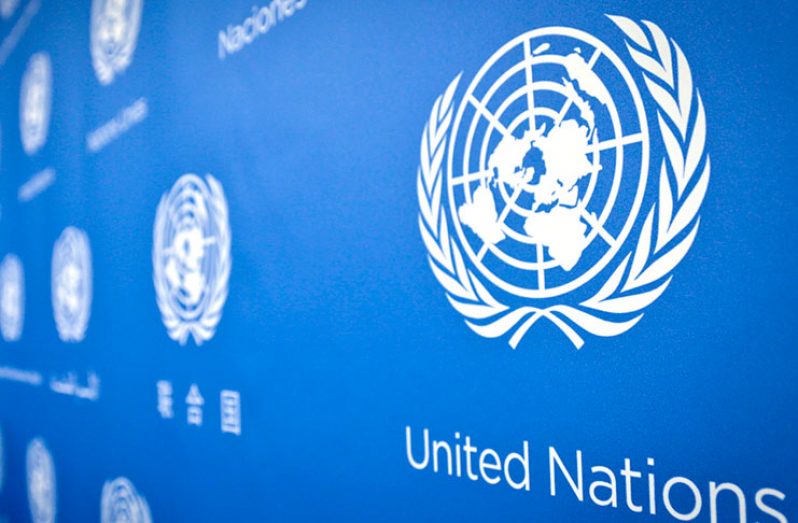By Svetlana Marshall
President David Granger has called on the United Nations to help protect and preserve the ‘Guiana Shield’ as a global resource for the survival and sustainability of the planet.
The Guyanese President made the call at a time when countries across the world are being devastated by natural disasters. In Dominica, Hurricane Maria left more than nine persons dead and significant damage to the country’s infrastructure, while in Mexico, over 200 people were killed after a magnitude 7.1 earth quake struck the North American country.
President Granger, in his address during the General Debate of the 72nd Regular Session of the UN General Assembly, said the Guiana Shield is critical to the mitigation of the greenhouse effect.
Greenhouse gases in the atmosphere are linked to the increase in global temperatures which will ultimately result in increased risk of drought and increased intensity of storms, including tropical cyclones with higher wind speeds.
“Guyana is part of the Guiana Shield, one of the world’s last remaining blocks of pristine rainforest. The ‘Shield’ is the source of 15 per cent of the world’s freshwater reserves…It provides environmental services such as the regulation of the water cycle, water quality and pollination. The ‘Shield’s’ forests capture and store carbon, thereby mitigating the greenhouse effect. The ‘Shield’ is essential to life on the planet,” President Granger told the world leaders.
It is the strong belief of the President, that a sustainable planet is humanity’s ultimate patrimony.
“We have been indifferent too long to the need to protect the planet and now its sustainability is threatened on many fronts,” he stated.
Emphasising that climate change is not a fiction nor the invention of a few extremists, President Granger pointed to the small island states of the Caribbean and parts of North America that have felt the devastating fury of a series of hurricanes – Harvey, Irma, José, Katia, Lee and Maria.
“Hurricane Irma was a deadly, destructive portent of the extreme vulnerability and fragility of the small island developing and low-lying coastal states of the Caribbean. Guyana is playing its part, within the limits of its resources, to provide relief to affected populations in sister Caribbean states,” he said.
It was on this note that the President renewed Guyana’s commitment to the UN’s Paris Climate Agreement, which he had signed onto on behalf of the country in 2016.
Guyana’s recommitment to the agreement is demonstrated most positively in the country’s pioneering role in global environmental stewardship.
He recalled that in 1989 – three years before the Rio Conference of 1992 – Guyana entered into an environmental covenant with the international community by dedicating 360,000 hectares of its rainforest.
Guyana, 20 years after that international initiative, entered an agreement with the Kingdom of Norway “…to work together to provide the world with a relevant, replicable model of how Reducing Emissions and Forest Degradation, plus conservation and sustainable forest management (REDD+) can align the development objectives of forest countries with the need to combat climate change.”
Meanwhile, in making reference to the theme of the General Debate “Focusing on people: Striving for peace and a decent life for all on a sustainable planet,” President Granger noted that is facing several serious humanitarian crises.
“Children, in too many parts of the world, still die from preventable diseases or go to bed hungry. Women, in some places, are denied equal opportunities to enjoy a ‘good life.’ The gap between the world’s rich and its poor remains unacceptably wide. Conflicts within states have spawned international refugee crises which have resulted in millions being displaced from their homelands,” he told the world leaders.
The Sustainable Development Goals (SDGs), he posited, are a representation of the UN’s collective mission to eradicate hunger and poverty, while promoting equal opportunities in education, employment and social justice for both men and women.
However, he said the advancement of the Sustainable Development Goals (SDGs) is being obstructed by the incidence of human rights violations and the involuntary migration of people from their homelands and by terrorism and warfare.




.png)









